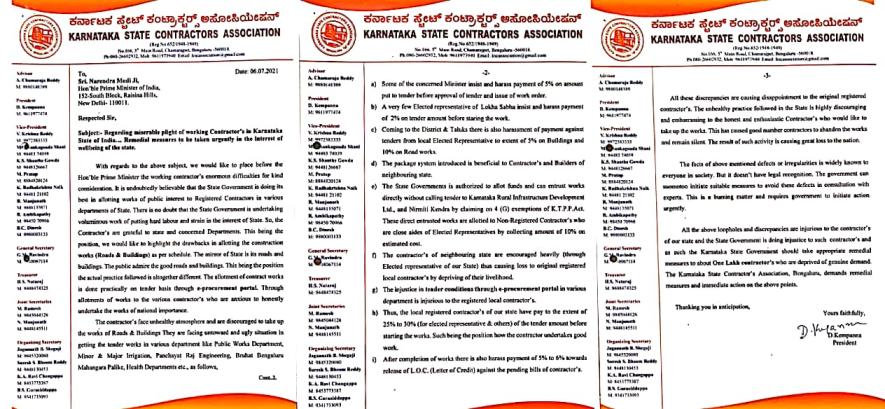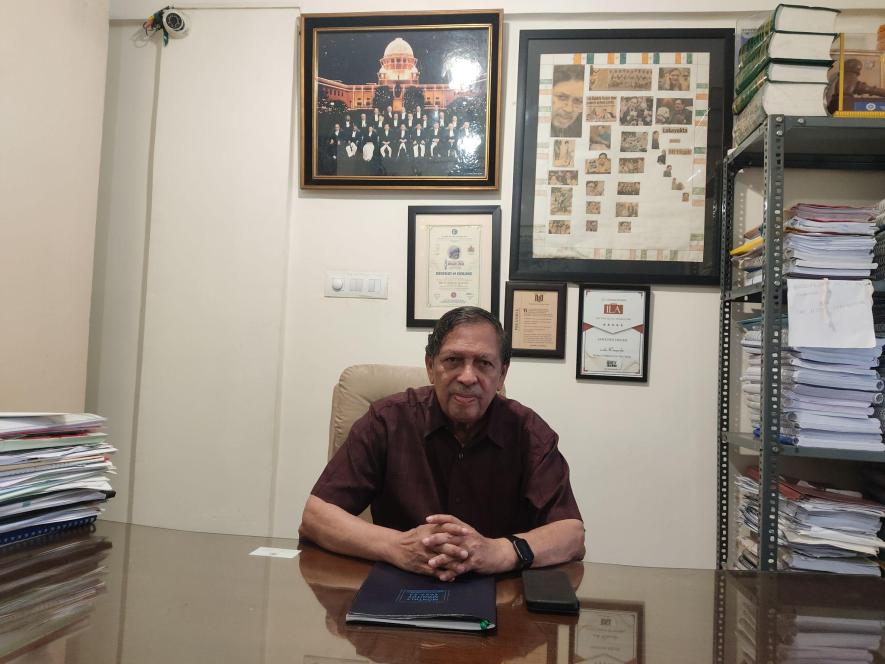Karnataka Elections: Corruption and Erosion of Protective Institutions
As the state of Karnataka gears up for the 2023 Assembly elections in a few weeks, the allegations of corruption seem to be taking a toll on the incumbent government.
The recent arrest of the Bharatiya Janata Party (BJP) MLA, Madal Virupakshappa, by the Karnataka Lokayukta Police on the evening of March 27 has made the ground shaky for the ruling party. The arrest was made hours after Karnataka High Court rejected an anticipatory bail application moved by Virupakshappa.
After keeping away from the public eye for three days after the raid, Channagiri MLA Virupakshappa surfaced in his hometown, Madal, receiving a rousing welcome, on March 7.
On March 2, he was raided by the Lokayukta Police for holding unaccounted cash worth Rs 6 crore at his residence. A day before, his son was caught red-handed taking bribes to clear contracts to supply raw materials to the state-run Karnataka Soaps and Detergents Limited (KSDL). The incident led to Madal’s resignation from the chairmanship of KSDL.
In political circles, it is to be believed that the cash overhaul episode brought immense embarrassment to the ruling BJP camp resulting in the prime minister’s conspicuous omission of the issue of corruption during a public address to take on the opposition parties.
The Corruption Streak
The next instance of corruption claims rocking the government was on March 18 when the Karnataka State Contractors’ Association (KSCA) claimed that commission charges were demanded by government officials to clear up the pending payments of contractors across the state.
Kempanna D, President, KSCA told NewsClick, “Forty per cent commission demands have been brazenly made by government officials to clear the pending payments. In 2021, for the first time, we conveyed this concern to the prime minister followed by then Chief Minister BS Yediyurappa as well as the Governor, but no action was taken.”
Kempanna also alleged that a series of complaints were not heeded by the Yediyurappa-led BJP government in 2021.

The letter by the Karnataka Contractors’ Association to Prime Minister Narendra Modi. Courtesy: Kempanna D
The Association in the letter alleged that demands of cut money included shares for ministers, Lok Sabha MPs, and local representatives at the district and taluk level and sought remedial measures against it.
It is to be noted that the pending amount to be cleared was nearly Rs 22,000 crore.
To date, KSCA awaits a response and action both from PM Modi and the BJP-led state government.
Meanwhile, the Contractors Association of the state's biggest civic body has also accused the Bengaluru Mahanagara Palike officials of demanding a 50% commission to clear their pending bills which were worth Rs 3,200 crore.
Interestingly, the government faced flak when irregularities in the recruitment of police sub-inspectors with the involvement of an incumbent IPS officer, Amrit Paul, made the headlines.
In another instance, state’s Municipal Administration Minister N Nagaraju was found speaking about a police inspector who had allegedly paid a bribe of Rs 70 lakhs to get a posting.
‘Dysfunctional’ ACB and ‘Diluted’ Lokayukta
The recurrence of corruption in the state of Karnataka is not a new or isolated event; instead, it has strong links with the weakening of institutions that were meant to crack down on corruption.
The erosion of the Anti Corruption Bureau (ACB) and dilution of state Lokayukta were the results of systemic planning by the political class comprising parties both in power and opposition.
Unsurprisingly, BJP MLA Madal’s son, Prashanth Madal, was part of the now-defunct Anti-Corruption Bureau (ACB) which was struck down by the orders of the Karnataka High Court last year. The bribery case, some believe, hints at shady transactions of the ACB as well.
ACB’s journey since 2016 has been a controversial one. This became evident when it had summoned a senior bureaucrat (sitting Bengaluru Urban DC, J Manjunath, in 2022 on charges of bribery), but was slammed by the high court for not acting swiftly against the officer. Moreover, the high court termed the ACB the “centre of corruption'' headed by a tainted officer.
The fact that ACB was part of the regular police force and reported to the chief minister paved the way for political control.
As per official figures, between March 2016 and March 2022, the ACB registered more than 2,000 cases but ended up with only 19 convictions.
The inability to take strict action against corruption became the reason for the Karnataka high court to axe the Anti Corruption Bureau in 2022.
Former Lokayukta of Karnataka, Justice Santosh Hegde, has been critical of ACB’s intent to take on corruption.

Justice Santosh Hegde. Photo by Saurav Kumar
In a conversation with NewsClick, the former Supreme Court Judge said, “Corruption in Karnataka has been consistent irrespective of political parties in power and it was done by diluting the powers of Lokayukta by all parties.”
Lokayukta is an ombudsman independent body with an aim to check the abuse of power (via political and administrative work) and fight maladministration such as corruption by prosecuting the culprits using an independent police force.
In Karnataka, Lokayukta was formed in 1986 and till 2001, nobody knew the exact functioning of the institution, claims Justice Hegde.
“Lokayukta is a People’s Commissioner, but technically it didn’t happen in 15 years after its formation. The first effective period of Karnataka Lokayukta was between 2001-2005 by establishing a connection with the people of the state and acting on their grievances,” said Justice Hegde.
In the following years, Justice Santosh Hegde became the Lokayukta for a period of five years (2006-2011) and made instrumental prosecution in the illegal Bellari mining case and indicted three chief ministers belonging to the BJP, Congress, and the JD(S) besides six ministers, many MLAs, and more than 150 government officers including IAS and IPS.
This crackdown shook the political class and thereby efforts to allegedly weaken Lokayukta started.
In 2015, the ruling Congress government and opposition parties reached a consensus on the need for more powers to remove judges from the Karnataka Lokayukta’s post, and the legislature passed the Karnataka Lokayukta (Amendment) Bill, 2015.
Subsequently, in 2016 the Anti-Corruption Bureau was formed after it withdrew power from Lokayukta to investigate cases under the Prevention of Corruption Act, benefitting all political parties in the state.
As per Hegde, besides the political class, society also needs to take the onus for “following the bandwagon of corrupt politicians whom they elect to power and decry foul play when they start robbing people of their rights”.
The writer is a freelance journalist.
Get the latest reports & analysis with people's perspective on Protests, movements & deep analytical videos, discussions of the current affairs in your Telegram app. Subscribe to NewsClick's Telegram channel & get Real-Time updates on stories, as they get published on our website.
























